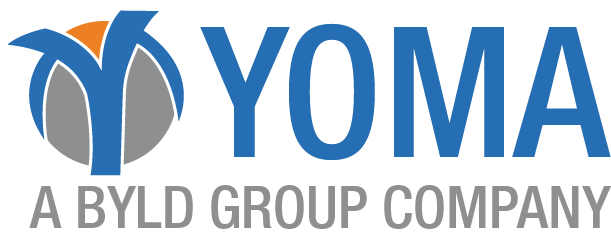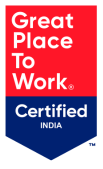Introduction
In today’s fast-paced business world, where both employee expectations and regulations are constantly evolving, companies cannot afford to make mistakes in payroll. Payroll management is not just a back-end operation but a vital component that ensures employee satisfaction and legal compliance through proper payroll compliance services.
So, what is payroll management? Simply put, it refers to the structured process of managing employee salaries, bonuses, deductions, taxes, and net pay. The payroll process ensures employees are paid accurately and on time while keeping the organization aligned with government regulations. If you’re wondering how to do payroll, it starts with precise tracking and ends with regulatory reporting.
Whether you run a small startup or a large enterprise, your payroll process reflects your commitment to compliance, reliability, and care for your workforce. Payroll management in HR plays a pivotal role in enhancing a company’s reputation. With advances in technology, payroll management software and payroll software have revolutionized time-consuming tasks prone to human error. The growing adoption of payroll management systems across industries highlights this shift.
Why Payroll Management Matters to Every Business
Payroll management is more than a financial obligation—it builds trust, maintains compliance, and boosts employee morale. A smooth payroll process communicates to your employees that their time, effort, and well-being are valued.
Issues like delayed salaries, incorrect deductions, or non-compliant paperwork can demotivate even the most dedicated employees. That’s why implementing a well-structured payroll management system is essential. These systems automate calculations, ensure timely payments, and integrate seamlessly with attendance management and leave management to reduce manual errors and compliance risks.
Modern payroll software features everything from tax calculations to payslip generation. This digital shift improves transparency and reduces the burden on HR teams. A strong payroll management software solution not only processes salaries but also aligns with legal standards, positioning payroll management in HR as a strategic function.
By leveraging reliable Payroll Compliance Services and payroll management services, businesses can avoid costly legal issues. These services ensure accurate handling of tax forms, deductions, and labor law requirements—essential for understanding what payroll management is and how to do payroll efficiently.
Today, payroll in HR extends far beyond basic salary processing. It influences trust, legal standing, and organizational transparency. Companies investing in robust payroll management systems and effective payroll software are better positioned for growth, agility, and employee retention.
What Is Payroll Management & How It Works
Payroll management involves systematically handling employee earnings, bonuses, payments, taxes, and net salary. It is now a mission-critical role that enhances security, clarity, and employee satisfaction. If you’re asking, “What is payroll management?” this is the core definition.
The payroll process starts with collecting employee data such as hours worked, tax declarations, and benefit entitlements—closely tied to attendance management and leave management. Errors in this data lead to salary discrepancies. To eliminate such issues, businesses adopt integrated payroll management software.
Next comes calculating gross pay, deducting taxes (e.g., Provident Fund, TDS, or loan repayments), and determining net pay. This stage requires strict compliance with labor and tax laws, making Payroll Compliance Services indispensable.
A reliable payroll management system automates payslip creation, salary transfers, and statutory reporting (e.g., EPF, ESI, TDS). Digital tools streamline the entire payroll process, minimizing human errors and saving valuable time.
Payroll management in HR now encompasses salary processing, legal compliance, data security, and timely reporting. The question is no longer how to do payroll manually, but how to do it strategically.
With modern payroll management services, businesses improve efficiency, build trust, and stay compliant. Understanding what payroll is in HR becomes effortless with the right tools. Payroll management is at the intersection of employee experience and organizational credibility.
Benefits of an Efficient Payroll Management System
A robust payroll management system transforms businesses of all sizes. Gone are the days when payroll meant just distributing paychecks. Today, it drives employee trust, legal compliance, and operational efficiency. Companies investing in powerful payroll management systems and advanced payroll management software enjoy numerous benefits:
Accuracy in Salary Calculations
Manual payroll records often lead to errors, especially in large teams. Payroll management software performs precise calculations based on salary structure, bonuses, and deductions, ensuring compliance and employee satisfaction.
Integrated Attendance and Leave Management
Payroll systems should integrate with attendance management and leave management tools. This ensures accurate payroll processing for work hours, leaves, and holidays, reducing the HR workload and improving accuracy.
Enhanced Legal Compliance
Smart payroll software ensures automatic compliance with tax laws, EPF/ESI contributions, and statutory filings. Built-in Payroll Compliance Services make compliance a seamless part of payroll management in HR.
Data Security and Privacy
Payroll systems handle sensitive employee data like bank details and salary information. Secure payroll software offers encrypted access, ensuring privacy and reducing data breach risks.
Time and Cost Efficiency
Automating payroll processes saves time and reduces repetitive tasks. HR teams can focus on strategic functions rather than manual data entry. Payroll management services are cost-effective and scalable.
Employee Self-Service Portals
Modern payroll software includes portals where employees can view pay slips, download tax documents, and manage attendance and leave—without HR intervention. This boosts transparency and trust.
Scalability for Business Growth
A good payroll management system adapts to growth, managing payroll for 5 to 5,000 employees efficiently. It supports diverse pay structures, locations, and benefits.
By embracing digital payroll tools, companies master what payroll management is and redefine payroll in HR as a strategic, compliant, and employee-centric function.
Key Features to Look for in Payroll Management Software
To ensure employee satisfaction, compliance, and operational efficiency, businesses must choose payroll management software with the following features:
Seamless Integration with Attendance and Leave Management
Ensure the payroll tool syncs with attendance and leave systems for accurate payroll processing. This minimizes manual entries and errors.
Automated Payroll Calculations
Look for automation in calculating salaries, bonuses, and statutory deductions like PF and ESI. This reduces dependency on spreadsheets and manual checks.
Built-in Compliance Tools
Choose software with built-in Payroll Compliance Services or easy integration with compliance tools. Automating tax filings and deductions ensures you stay up to date with regulations.
Customization and Scalability
Your payroll system should scale with your business. It must support multiple pay structures, benefits, and geographical locations.
Employee Self-Service Portals
Allow employees to manage their own payroll data—pay slips, tax forms, leave requests, and attendance records—from a centralized platform.
Advanced Reporting and Analytics
Look for tools that generate detailed reports on payroll summaries, audit logs, and compliance status to support informed decision-making.
Cloud Access and Data Security
Cloud-based payroll software ensures secure, role-based access to payroll data anytime, anywhere, with encrypted backups.
With the right payroll software, businesses answer the question of what is payroll in HR not just with numbers, but with strategy, compliance, and employee well-being.
Read More – Payroll Management can Regulate Performance Management
Why Integrating Payroll, Attendance, and Leave Systems Matters
Modern payroll doesn’t exist in isolation. It must integrate with attendance management and leave management systems for accurate and efficient payroll processing.
This integration eliminates manual data entry, improves accuracy, and ensures every worked hour or leave is accounted for. It clarifies pay discrepancies and reduces HR interventions.
Integrated payroll software automates work-hour calculations and statutory deductions. Leave management sync ensures accurate leave usage and balances. The data flow between systems enhances efficiency and trust.
Automation reduces payroll errors and fosters transparency. Employees can access their records, request leave, and check approvals through self-service platforms.
Seamless integration also supports Payroll Compliance Services, making tax filings and legal reporting faster and more accurate.
Overall, integrated payroll management services boost accuracy, reduce compliance risks, and improve employee engagement. This defines what payroll management really means today.
Why YOMA is the Smart Choice for Payroll Excellence
Indian businesses seeking scalable, compliant, and employee-friendly payroll solutions should consider YOMA Business Solutions. With years of HR payroll management expertise, YOMA delivers end-to-end payroll management tailored to modern workforces.
YOMA’s tools address payroll, attendance, and leave challenges while offering reliable payroll software and integrated services. From onboarding to final payouts, every payroll process is automated and compliant.
YOMA’s payroll system automates tax calculations, payslip generation, and government filings. Its built-in Payroll Compliance Services help businesses remain legally sound. Employee self-service portals enhance transparency and reduce HR workload.
Choosing YOMA means gaining a trusted partner that understands payroll in HR, knows how to do payroll right, and scales alongside your business.
Read More – Payroll Management and Its Importance for Employees
Conclusion: Transform Your Payroll, Transform Your Workplace
In today’s evolving work environment, payroll management is not just a backend function but a strategic business operation. It impacts employee trust, legal compliance, and operational success.
Understanding what payroll management is and how to do payroll correctly starts with the right tools and expert support. Using integrated payroll software that automates attendance, leave, and compliance is not just convenient—it’s essential.
Investing in the right payroll system promotes timely salary disbursement, eases audits, and boosts HR productivity. Payroll compliance services and trusted payroll management services ensure legal readiness and business agility.
Payroll is more than numbers—it’s about fairness, trust, and scalability. Businesses that manage payroll effectively build stronger teams, a better culture, and long-term success.










